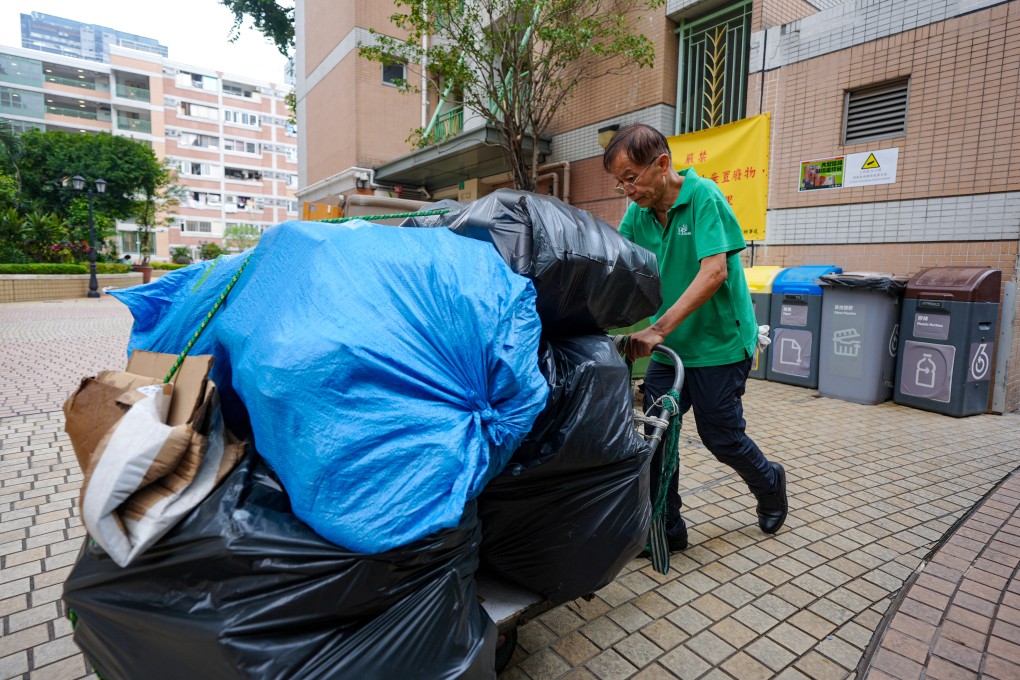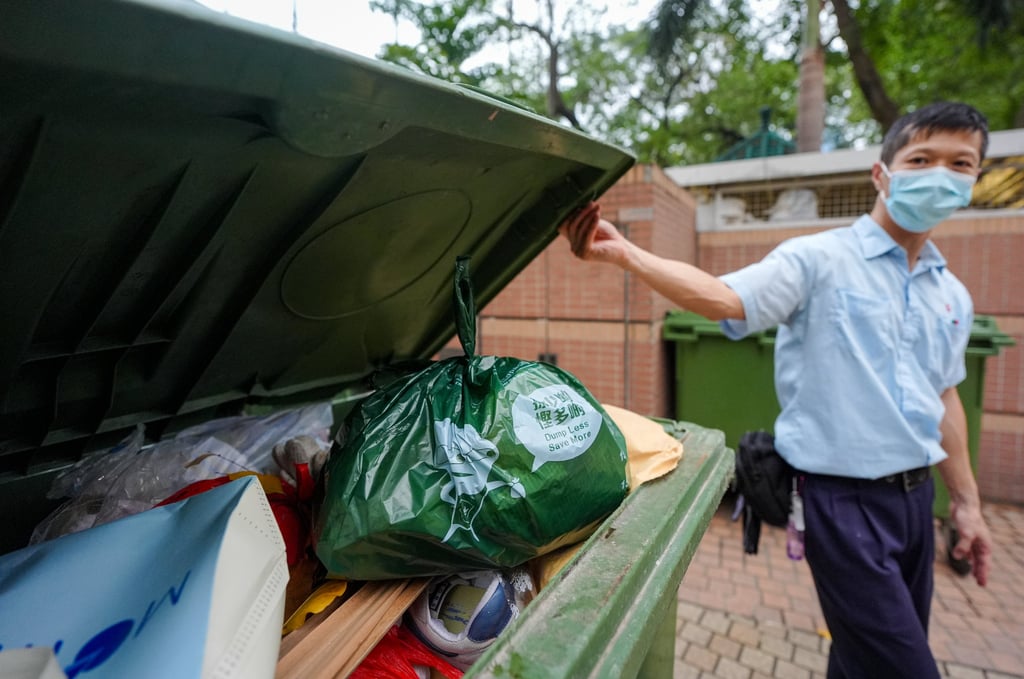Hong Kong’s plan to hand out 170 million garbage bags from now-shelved waste-charging scheme sparks questions about effectiveness
- Green Earth says distributing designated garbage bags to public housing tenants merely effort to clear stock of 170 million bags produced for scheme
- Authorities set to hand out 20 bags for free to every household in public rental flats each month for half a year, double number of food waste recycling facilities and add 100 mobile collection spots across city

Hong Kong authorities must show that measures planned as a substitute for a now-shelved waste-charging scheme are effective and will improve recycling rates, experts and a former environment official have said.
Critics on Tuesday argued that one of the measures – the distribution of designated garbage bags to public housing tenants – would not encourage waste reduction and was merely a move to clear the stock of 170 million bags produced for the scheme.
The government on Monday suspended the controversial much-delayed scheme, which was due to take effect on August 1, citing public opposition.
No details were offered on when the scheme would make a comeback.

Some residents at Oi Man Estate in Ho Man Tin, one of Hong Kong’s oldest public housing estates, said they were sceptical about the government’s mitigation measures.